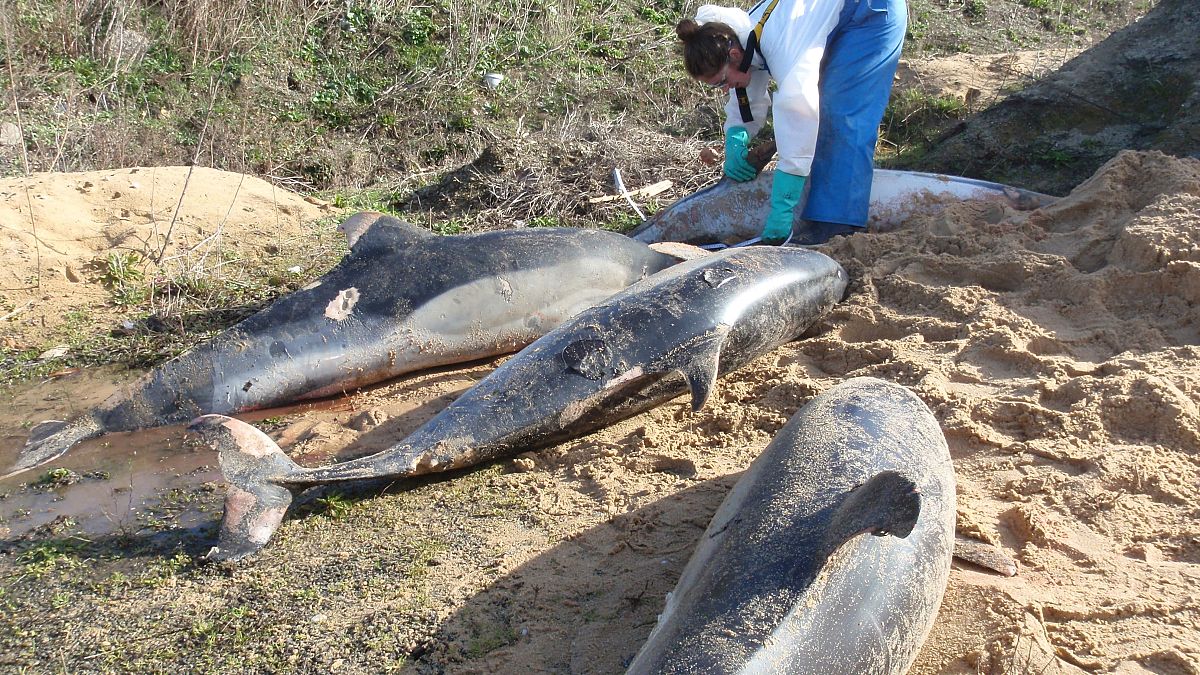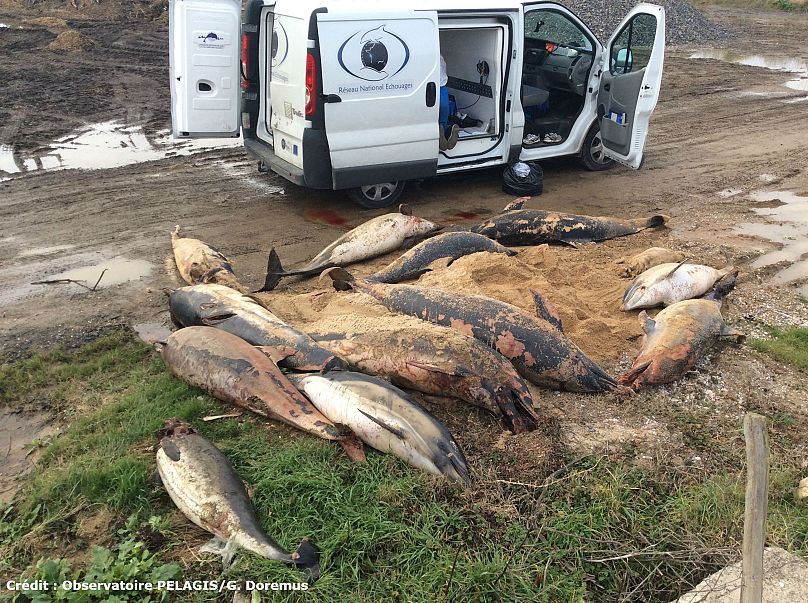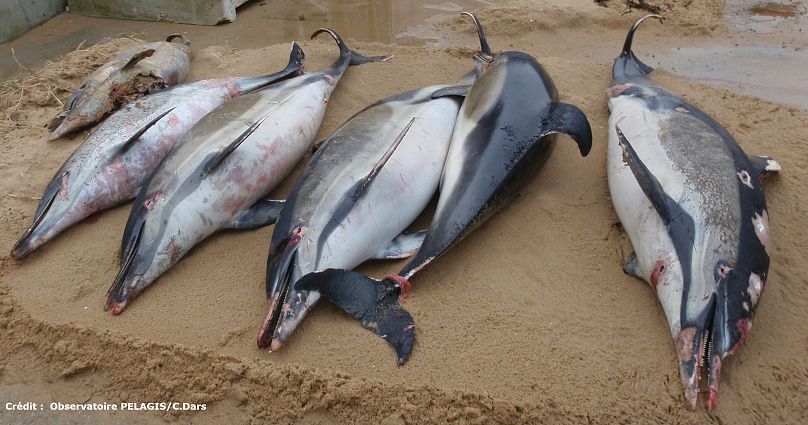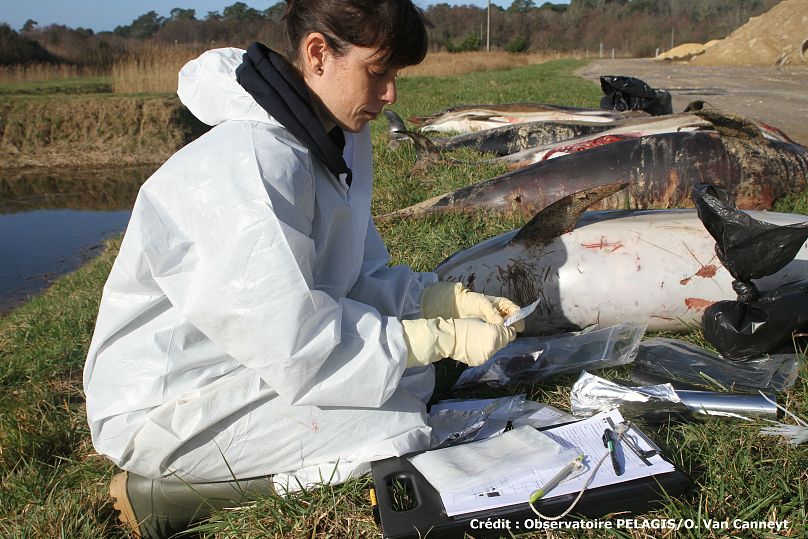Some 700 dolphins washed up dead on French beaches over the winter, figures reveal, most of them victims of the fishing industry.
Some 700 dolphins washed up dead on French beaches over the winter, figures reveal, most of them, victims of the fishing industry.
Between January and April 2018, some 700 small cetenea, most of them common dolphins and to a lesser extent harbour porpoise, were found dead on beaches on the French Atlantic coast.
"Seventy to eighty percent of them presented lesions compatible with an accidental death after being caught in fishing gear," Olivier Van Canneyt, biologist at the Observatoire Pelagis — a research centre dedicated to the conservation of marine mammals and birds — told Euronews.
Cuts from fishing nets, amputated fins, broken rostrums or asphyxiations were some of the signs that their deaths followed them being inadvertently caught by fishing vessels.
Soaring numbers
The phenomenon isn't new and the Observatoire Pelagis has been collectig data on marine mammals beaching for 40 years, but numbers have soared over the last three years.
Additionally, these beached dolphins represent a small fraction of the number of deaths accidentally caused by fishing vessels. Scientists estimate that some 4,000 common dolphins die in this way, with 80% of them sinking and decomposing at the bottom of the ocean.
It is most visible in winter because common dolphins, which are the most impacted, are more numerous near the coast at that period.
"Everybody's looking for fish at this time — dolphins and fishermen," Van Canneyt said.
"There can be accidental captures offshore in the summer, but we might not see them beached," he added.
How to prevent capture
Most of the dolphins get caught by large trawling nets that can be deployed between two small vessels or a single large trawler. In France, 30% of the 6,000 fishing vessels are trawlers.
Tests including modifying the net to allow for dolphins to escape have been conducted but to no avail, Van Conneyt explained.
Acoustic pingers, fastened onto the net and blasting a sound repellent have been most effective in the fight against accidental capture but they were designed to prevent porpoise being caught by fishermen using gilnetting on boats much smaller, and therefore less noisy, than trawlers.
For Van Canneyt, much more powerful pingers are needed. A programme aiming to equip trawlers with such pingers is to be launched in France in the coming winter.
A European response
The issue is not restricted to French territorial waters, which entend 12 nautical miles (22 km) from the coast.
"In the Bay of Biscay, Spanish fisheries operate, which represents a considerable fishing effort," Héléne Peltier, from the Observatoire Pelagis, told Euronews. She highlighted that large industrial fish and freeze companies, mostly Dutch and French, also operate.
Regulations add another layer of difficulty.
"At the French level, we're already trying to take decisions and find solutions to improve our knowledge. At the European level, given the stakes, it's immediately more complicated" as fishing quotas are in place, Peltier pointed out.
Furthermore, while France keeps a detailed account on the number of marine mammals beaching, other countries are not necessarily as rigorous. Collaborations between institutes are now being put in place, particularly with the UK, to draw a more thorough picture of accidental capture.
Scientists are also lobbying to spend more time on fishing vessels to observe.
"We have a huge data deficit, so it's difficult to find technical solutions that are adapted," Van Conneyt said.
"Next winter's programme, financed with EU funds, will test pingers. But there will also be an investigative aspect with fishing professionals.
"We'll try to come up with good practices and then put in place measures that are adapted to the fishing industry without being extremely constraining to prevent accidental captures," he concluded.



